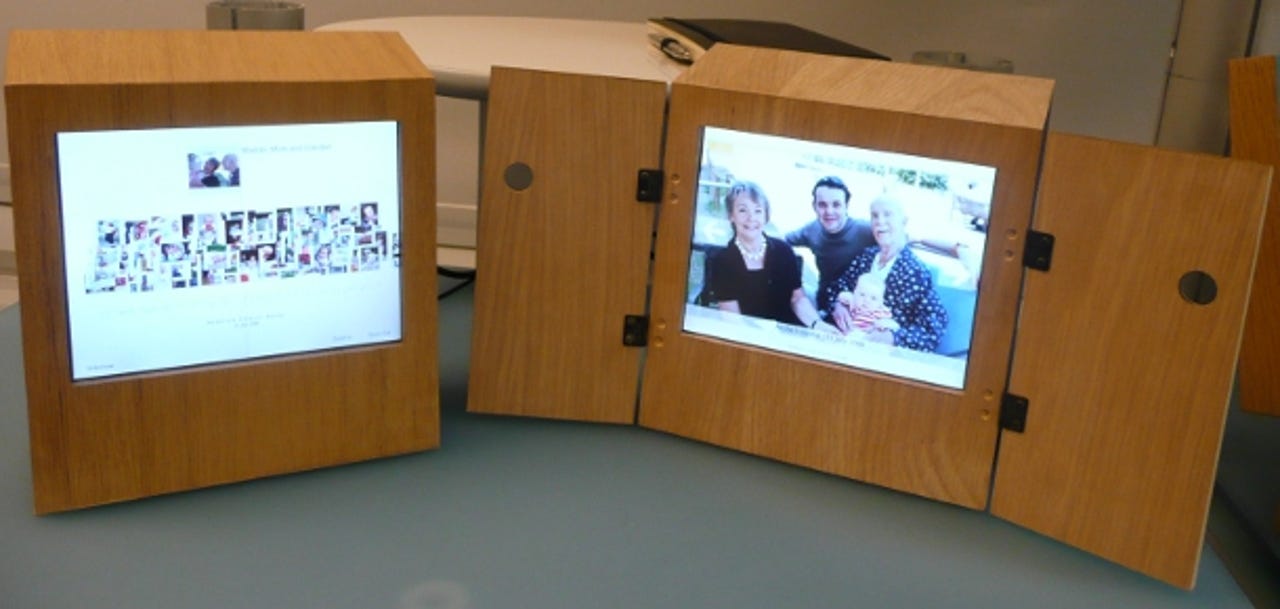Microsoft Research tech digitises the past


Microsoft Research's Cambridge lab this week showcased some of the technologies that its team of UK researchers is currently working on. ZDNet UK's sister site silicon.com went to Cambridge to speak to some of the researchers and take a look at the software behemoth's latest tech experiments in action.
One of the projects Microsoft is working on is Heirlooms, which explores how people will pass on their possessions and memories to loved ones now that much of people's lives are represented by digital items rather than physical ones.
Above is a Timecard — essentially a digital photo frame connected to a computer which shows a collection of digital photos and hard copies of snaps that have been digitised.
The device also lets users see the images as part of a timeline, showing how the various items relate to certain periods in a person's life.
Shown above is a timeline for an individual who fought in World War II, which includes a group of digitised items, such as photos and documents, detailing their wartime experiences.
When the person gets married, and subsequently when their children and grandchildren come on to the scene, there are further collections of pictures of them with their family and friends to commemorate these events.
Here, Microsoft is aiming to take an old piece of technology and combine it with a new one to allow people to share digital material in a more familiar way and without the need to sit in front of a computer.
Shown above is a photo viewer which works with what look like empty photo slides. When the slides are put into the view finder, a sensor reads the coloured labels on the slides and triggers the viewer to access the relevant image files on an attached storage device, then display them on the screen.
For more on this story, see Photos: Microsoft puts its latest tech experiments on show on silicon.com